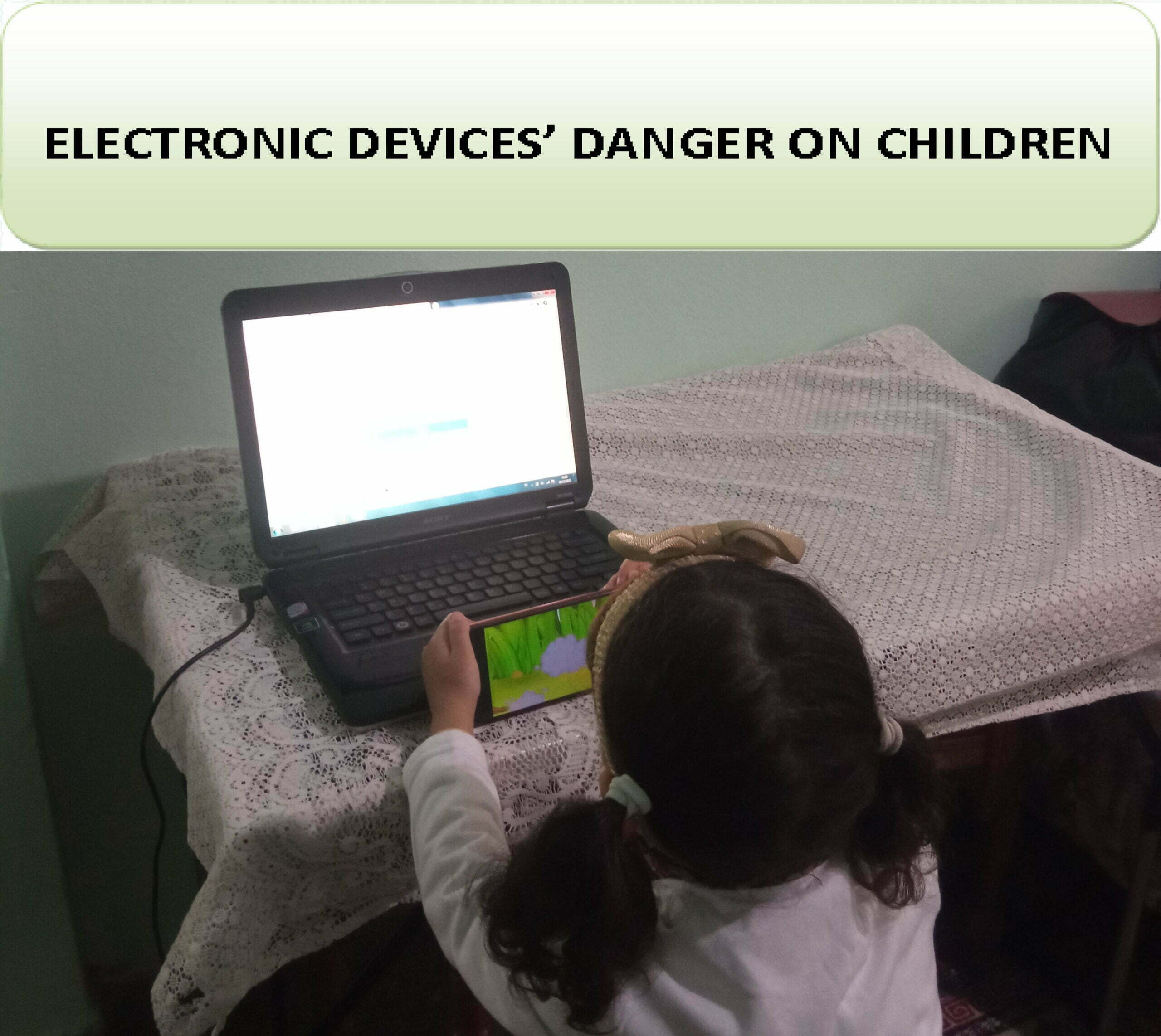Scientists concentrated on the negative impacts of electronic devices on young children and their associated physical, mental and psychological threats. Being exposed to electronic devices is particularly hazardous for children since they emit electromagnetic energy. They can cause various brain problems, from decreased attention and mental health to physical brain injury. Although a brief exposure to electronic devices isn’t a significant risk, more frequent and intensive exposure is a more considerable threat. In parallel with children’s brains growth, the effects of these devices could be detrimental. Children’s Area will set an eye on the possible dangers of electronic devices on children.
Physical Problems of Electronic Devices
While electronic devices offer numerous advantages, they can be harmful to health. The majority of electronics emit radioactive radiation, which could affect your body. Although many people do not know this, various technologies emit radiation within the same spectrum of radio frequencies. Furthermore, specific electronic devices proved to affect patients’ health. For instance, bright lights from a mobile phone could affect an individual’s eyesight, leading to a blurred focus area or blurred sight. Furthermore, radiation from electronic devices may cause cancer and other health issues.
In addition, the rising use of computers and other electronic devices has created physical challenges for individuals. They can cause headaches, fatigue, neck pain, and back discomfort when used excessively. The hands aren’t the only ones to suffer, but electronic devices can also affect the wrists. The repetitive movements users make with their hands can cause injury to muscles and tendons. It could cause weakening and pain.
Studies have proven that prolonged exposure to devices may cause damage to retinal cells and can lead to vision issues. Retina cells are the part of the eye responsible for processing light, and they cannot regenerate. The blue light spectrum is especially harmful to the eyes because they disrupt melatonin, regulating the body’s circadian rhythm.
In addition to the mental dangers, electronic devices impact children’s sleep. They can disrupt a child’s sleep pattern or cause children to be awake at irregular times. Sleep deprivation is another severe difficulty children may experience along with the previous problems. Furthermore, it may make it difficult for children to get sufficient sleep. Although children’s needs are different from adults, they require a minimum of seven hours of rest every night. The loss of half an hour’s sleep could be detrimental to their behavior in the morning.
The Mental Health Issues Associated with Electronic Devices
The risks associated with electronic devices are significant concerns for teens and children. Children’s use of electronic devices is the leading cause of depression, psychological stress, and suicidal ideas. Even the occasional video game could cause harmful effects. So, playing with electronic devices isn’t just detrimental to our youngsters and their parents. The longer they use electronic devices, the higher the risk of developing these disorders.
What is more, children who spend most of the day on their electronic devices experience faster brains, resulting in attention and behavior issues. A recent study showed that children frequently subjected to electromagnetic fields were more likely to suffer from depression and anxiety. As children’s brains undergo rapid changes, it’s essential to safeguard the health of their minds. But, many experts are worried that the frequent use of electronic devices could be contributing to the development of mental and behavioral health issues in children.
Using electronic devices two hours a day has a greater risk of having suicidal ideas, increased mental health symptoms, and a higher chance of becoming depressed. It is important to remember that the time spent in front of screens increases as you age, impacting the development of behavioral and psychological disorders.
Psychological Problems of Electronic Devices
Although the widespread usage of electronics has enhanced our quality of living for many, there are psychological problems associated with electronics. Electronic devices have created a life of solitude that sees people spend hours watching their screens. It is detrimental to our mental wellbeing. Despite the many benefits of technology, many are becoming dependent on their gadgets. It might seem perfect to stay connected with family and friends; however, addictive technologies could negatively affect our mental health.
Studies show that the excessive use of electronic devices can cause various psychological and mental problems. Teenagers who used devices for more than 2 hours daily experienced more mental health issues such as loneliness, depression, and suicidal ideas. Another study found that kids who spent the most time with their devices before bed may experience a higher risk of developing anxiety and depression.
Furthermore, excessive uncontrolled use may cause serious problems. Children may think of different scenarios to end their suffering when bullied by bullying. Consequently, they may think of committing suicide or taking revenge. It may also result in school problems like absenteeism or even dropping out.
Tips To Reduce the Danger of Electronic Devices
Design « Technology-Free Zones »
Create zones in your home that are entirely electronic-free permitted, whether cell phones, handheld video games, or laptops. An example would be the dining room in your home and the kitchen area, which you can reserve for eating and family discussions. These places may help your children build up stronger personality traits.
Use Parental Controls over Electronic Devices
You can utilize tools to safeguard your children from accessing sexually explicit material on the Internet and TV. Most routers, web browsers, and TVs provide parental controls which you can set up to block or filter inappropriate content. If your children have smartphones, they can also use built-in settings or apps that you can download to make content filters. Some also let you restrict specific websites, web searches, or even specific keywords.
Find your child’s Passwords
It might be worth asking your children for their social media and online accounts passwords. They may not possess the maturity needed to manage online interactions and may be vulnerable to cyberbullying.
You may need to talk about the options with your family; however, it’s your responsibility as a parent to determine the best method to safeguard your child while giving them some freedom and privacy.
Encourage Other Activities
With an abundance of games, apps, devices, gadgets, and content, kids can easily depend on electronic devices to entertain themselves. Let your kid lookout and engage with activities that don’t require screens. Playing outside, reading a novel, or even re-discovering an old game are just some suggestions. It may also be helpful to create (and implement) the rules which everyone in your family should respect.
It is vital to communicate to your children when they are allowed to use screens and when they’re not is an excellent way to establish your expectations and help avoid disputes.
Things to Teach your Children
Although technologies are as crucial as water to our lives, it is vital to use them responsibly. Notably, you should teach your children how to make smart choices in using the devices. You must give them enough time to use these devices and receive the proper instructions. Moreover, You have to keep your children away from the reach of electronic gadgets as much as possible. Briefly, remeber that electronic devices can deprive children of the appropriate behavior for a happy and healthy life, so act before it’s too late.

